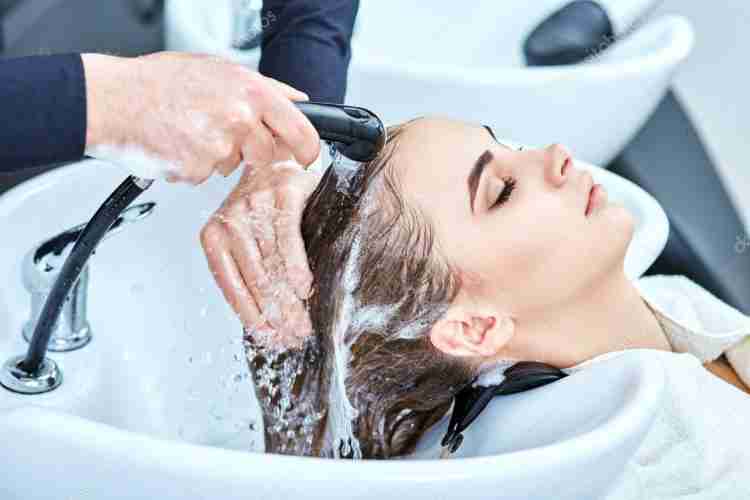Is Volumizing Shampoo Bad for Hair? Beauticians Weigh In
For beauticians, staying updated on emerging haircare trends and the latest product formulations is crucial to delivering exceptional services to clients. One question thats been buzzing in the beauty industry is, 'Is volumizing shampoo bad for hair'? While volumizing shampoos are wildly popular due to their promise of lifting limp locks and creating fuller, thicker hair, theres growing concern surrounding their long-term effects on hair health.
Lets delve deeper into the science, ingredients, and potential risks of volumizing shampoos so that you, as a professional beautician, can provide informed guidance to your clients.
:max_bytes(150000):strip_icc()/shampoo-0a8be142bde84f4d91b166aaa38441a6.png)
Understanding Volumizing Shampoos
Volumizing shampoos are specially designed to add body and bounce to fine or flat hair. They typically work by removing excess oil and buildup from the scalp while coating the hair shaft with lightweight polymers that create the appearance of thickness. It sounds like a miracle solution, but is there a downside?
How Volumizing Shampoos Work
The active ingredients in volumizing shampoos often include:
- Sulfates: These are powerful cleaning agents that strip away oil, dirt, and heavy buildup.
- Polymers: These coat the hair strands to provide thickness and lift.
- Proteins: Often derived from keratin, proteins are used to strengthen and bulk up hair strands.
While these components deliver visible volume temporarily, they may come at a cost to the hairs overall health with prolonged use.
Potential Issues with Volumizing Shampoos
1. Overuse of Sulfates
Many volumizing shampoos rely on sulfates to deliver a squeaky-clean scalp that can support volume. However, sulfates can strip the hair and scalp of natural oils, leading to dryness, irritation, and even possible damage in the long run. If clients have color-treated or chemically-processed hair, they might notice their hair becoming brittle after consistent use.
2. Buildup from Polymers
The polymers in volumizing shampoos are responsible for that lush, thick appearance. However, over time, excessive polymer residue can build up on the scalp and hair. This buildup may clog hair follicles, hinder hair growth, and leave strands feeling heavy and greasy if not adequately removed.
3. Temporary Volume, Long-term Frizz
Clients seeking voluminous locks might not realize that the volume achieved through these shampoos is temporary. As sulfates and alcohols dry out the hair, moisture loss can lead to increased frizz and split ends over time.
Ingredients to Watch Out For
When advising your clients, always encourage them to inspect the ingredients in volumizing shampoos carefully. Ingredients that are frequently flagged for causing potential problems include:
- Sulfates Can dry out hair and irritate skin.
- Silicones Can lead to product buildup if not properly washed out.
- Alcohols Certain alcohols may strip hair of moisture.
Instead, look for products with nourishing ingredients such as panthenol, glycerin, and natural oils that provide lightweight hydration without weighing down finer strands.
Can Beauticians Recommend Volumizing Shampoos?
Yes, but with caveats. To best serve your clients, make personalized recommendations based on their hair type, current health, and goals. For instance:
- For those with naturally oily or limp hair, volumizing shampoos might be an excellent occasional solution.
- Clients who experience dryness or damage should opt for sulfate-free and silicone-free alternatives to minimize harm.
Advise your clients to rotate their shampoos or use clarifying shampoos occasionally to prevent buildup. For more insights, refer to Is argan oil shampoo good for hair.

FAQs About Volumizing Shampoo
1. Does frequent use of volumizing shampoo damage hair?
Frequent use of volumizing shampoos, especially those loaded with sulfates and silicones, might strip the hair of its natural oils and cause buildup over time.
2. Are there safer alternatives to volumizing shampoos?
Yes, sulfate-free volumizing shampoos with natural volumizing agents such as rice protein or seaweed extracts are gentler options.
3. How often should clients use volumizing shampoo?
Advise clients to use volumizing shampoos 23 times a week and alternate with moisturizing or strengthening shampoos to maintain optimal hair health.
When in doubt, educate your clients to pick products wisely. For more tips on shampoo selection, check out How to choose the right shampoo.
This article contains affiliate links. We may earn a commission at no extra cost to you.
